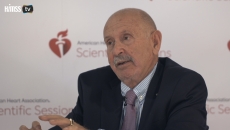Medical Devices
Capsule VP of Product Management Kevin Phillips explains how digital tools can be used to stream data from tools ranging from ventilators to monitors.
Better interoperability between devices could result in the "silent ICU" in which alarms are not constantly going off by a patient's bed.
There has been a long history of racial inequalities in healthcare, which have been exacerbated by COVID-19, says Kistein Monkhouse, CEO and founder of Patient Orator.
A new program led by a team at MIT searches for ideas to fight COVID-19 via hackathons and virtual events.
Buoy Health CEO Dr. Andrew Le explains how chatbots can help free up the health systems and get patients information in their home during the COVID-19 pandemic.
Providers continue to face critical shortages of critical care staff, ventilators, masks and other personal protection equipment.
International Society for Telemedicine & eHealth (ISfTeH) Board Member Rajendra Pratap Gupta says that the future will see the rise of fitness wearables along with patients managing their own health to a much greater degree.
Justin Gernot, vice president of HIMSS subsidiary Healthbox, says to find success in innovation, health organizations must avoid a number of pitfalls.
There are challenges separating effective innovations from the chaff, says Dennis Robbins, a member of the AHA's Health Tech Advisory Group.
Muse's headband tech offers a clinical-grade EEG that tracks brain waves during meditation, says founder Ariel Garten, claiming mind-body medicine is gaining appreciation on the provider side.







